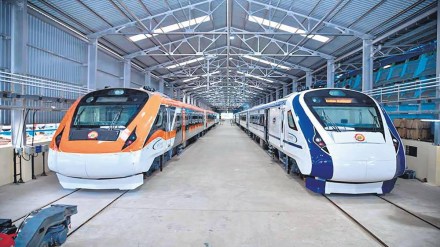Union Minister of Railways Ashwini Vaishnaw introduced the Railways (Amendment) Bill, 2024, in the Lok Sabha, proposing significant changes to enhance the functioning and autonomy of Indian Railways. The Bill seeks to grant statutory powers to the Railway Board and streamline railway operations, amidst debates on its impact on privatisation and autonomy.
Key Objectives of the Bill
The Railways (Amendment) Bill, 2024, aims to:
- Amend the Railways Act, 1989, to provide statutory backing to the Railway Board, which has functioned without such sanction since its inception.
- Improve operational efficiencies and decentralise powers, granting greater autonomy to railway zones.
- Establish an independent regulator to oversee various aspects of Indian Railways, including tariffs, safety, and private sector participation.
Vaishnaw emphasised that the Bill intends to bring efficiency to Indian Railways while simplifying its legal framework by merging the Indian Railway Board Act, 1905, into the Railways Act, 1989.
Proposed Reforms and Structural Changes
Independent Regulator
The Bill includes provisions for the creation of an independent regulator to safeguard stakeholder interests and encourage competition. Recommendations for such a regulator were first made in 2015 by the Committee on Restructuring Railways, focusing on issues like tariffs, infrastructure access for private operators, and service standards.
Autonomy to Zones
Increased autonomy for railway zones has been a long-standing demand, supported by various committees, including the 2014 Sreedharan Committee. The Bill proposes decentralising financial and operational decision-making to zones, empowering them to manage budgets, infrastructure works, and recruitment.
Appointment and Composition of the Railway Board
The government will decide the numerical strength, qualifications, and terms of service for Railway Board members. It will also oversee the appointment process for the Board’s Chairman and members, streamlining governance and accountability.
Financial Implications and Regional Development
The Bill introduces Section 24A to allow the government to expedite superfast train operations and infrastructure upgrades, such as extending the Arunachal Express via the Siwan-Thawe-Kaptanganj-Gorakhpur route. This change, specifically benefiting regions like Bihar, will require an estimated Rs 300 crore for infrastructure upgrades and an annual recurring expenditure of Rs 250 crore.
Opposition Concerns: Privatisation and Passenger Welfare
Opposition leaders raised multiple concerns during the debate:
- Privatisation Fears: Congress MP Manoj Kumar argued that the Bill could pave the way for privatising Indian Railways, reducing its accessibility for the poor.
- Impact on Autonomy: Many MPs, including TMC’s Kalyan Banerjee, expressed apprehensions that increased government control over Board appointments might erode the autonomy of Indian Railways.
- Passenger Concessions: Several MPs, including RSP’s NK Premachandran, demanded the restoration of fare concessions for senior citizens, journalists, and economically weaker sections, which were discontinued during the pandemic.
Government’s Defense
Vaishnaw dismissed allegations of privatisation, reiterating that the Bill aims to make Indian Railways more efficient and self-sustaining while upholding its social responsibility. BJP MP Ravi Kishan supported the Bill, highlighting its focus on simplifying the legal framework and modernising the railway system.
While the Railways (Amendment) Bill, 2024, proposes transformative changes aimed at operational efficiency and decentralisation, it has sparked debates over its long-term implications. The government insists that the Bill will improve governance and promote competition, but opposition parties remain concerned about potential privatisation and reduced welfare measures.
As Parliament deliberates, the Bill stands as a pivotal proposal in the evolution of one of the world’s largest railway networks.
